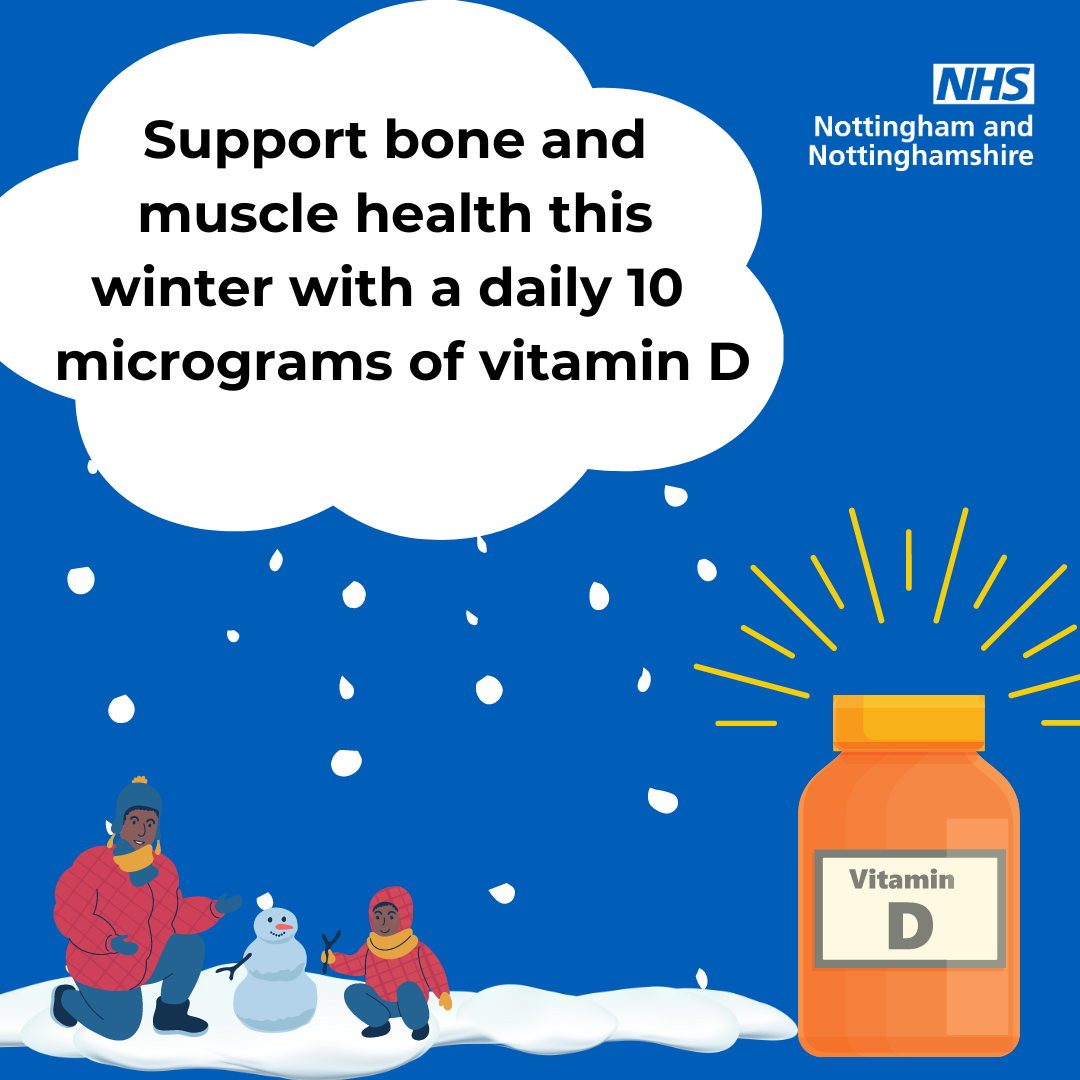Health experts in Nottingham and Nottinghamshire are encouraging people to take a daily vitamin D supplement to help stay healthy this winter.
Vitamin D is needed to keep bones, teeth, and muscles healthy. But between October and early March we do not make enough vitamin D from sunlight. Government advice is that everyone should consider taking a daily 10 microgram dose of vitamin D during the autumn and winter.
Dave Briggs, Medical Director at NHS Nottingham and Nottinghamshire, said: “If your vitamin D level is low, you may feel tired or have aches and pains and in some cases your bones can become softer, which can lead to other problems.
“You can get more vitamin D by eating certain foods or by spending time outside, but we recommend that everyone considers taking a daily supplement of at least 10 micrograms of vitamin D between October and April. If you are unsure about how much to take, you can discuss this with your community pharmacist.
“You can buy low-cost vitamin D supplements at most pharmacies and supermarkets and women and children who qualify for the Healthy Start scheme can get free supplements containing vitamin D.”
There are other ways to increase your vitamin D:
- Go outside: Our main source of vitamin D is from the action of sunlight on our skin. Small amounts of light all through the year, even on cloudy days, during your daily activities (e.g. for 30 minutes each day), may help to boost your vitamin D levels and just exposing your face and forearms to the daylight can be enough. People with dark skin, such as those of African, African-Caribbean or south Asian origin, will need to spend longer in the sun to produce the same amount of vitamin D as someone with lighter skin.
- Eat foods that contain higher amounts of vitamin D as part of a healthy balanced diet, such as oily fish, liver, egg yolks, mushrooms, red meat, cheese and fortified foods – such as most fat spreads, soy yoghurts, soy milk, almond milk, some orange juices, and some breakfast cereals.
GP practices in Nottingham and Nottinghamshire no longer routinely prescribe vitamin D supplements for regular treatment.
What dose of vitamin D should I take?
- Adults and children over 5 years old need 400 units (10 micrograms) a day. This includes pregnant and breastfeeding women and people at risk of vitamin D deficiency.
- Doses of up to 1000 units (25 micrograms) daily are acceptable for adults as a supplement.
- Supplements containing 1000 units (25 micrograms) are cheaper to buy than those containing 400 units (10 micrograms) or 800 units (20 micrograms).
- Please discuss with your community pharmacist if you are unsure what dose to take.
- If you have been identified by your healthcare professional as having a vitamin D deficiency, then you may be advised to take a higher dose of vitamin D.

